
A Practical Hybrid Active Learning Approach for Human Pose Estimation
Human Pose Estimation
- Estimate certain keypoints on human body.
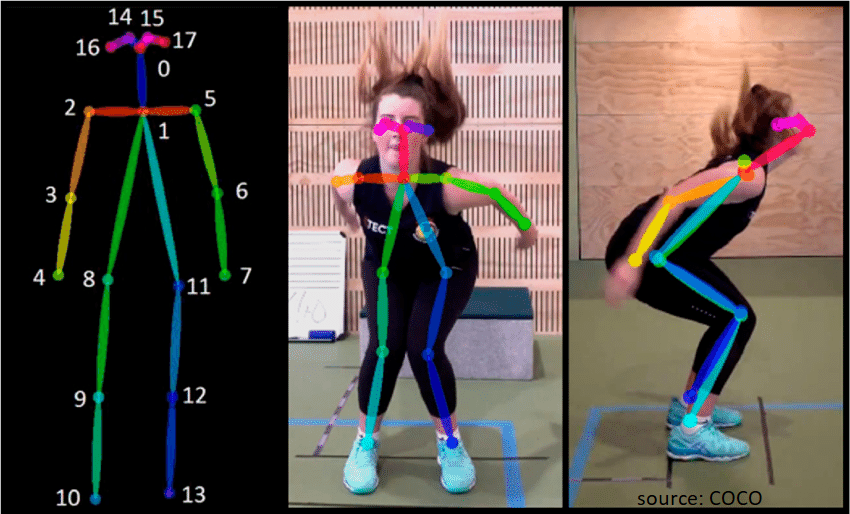
Problem
- Keypoint annotation is costly.
- Amount of data required for the task is large.
Solution
- Apply Active Learning (AL) to train a model iteratively.
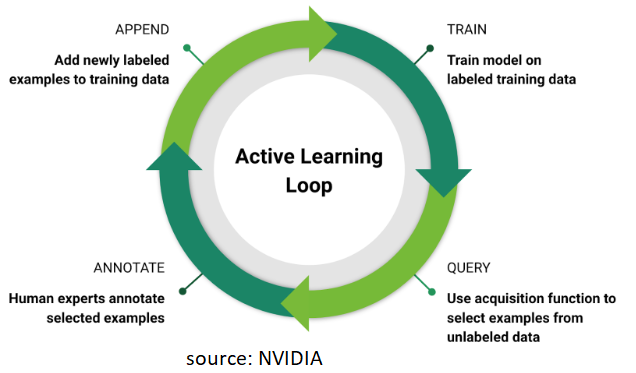
AIMS OF THE STUDY
- Apply Active Learning for Human Pose Estimation in an online environment.
- Propose a cost-effective hybrid sampling strategy: uncertainty and diversity.
An Overview of The Proposed Method
- A hybrid approach with uncertainty and diversity sampling.

Baseline Method and Evaluation Metric
- Random Sampling as a baseline method.
-
Person count accuracy:
\[\begin{aligned} \texttt{PC_ACC} = \dfrac{\texttt{Number of detected person}}{\texttt{Total number of person}} \\ \end{aligned} \]
Uncertainty Sampling Module
- Model-based uncertainty sampling.
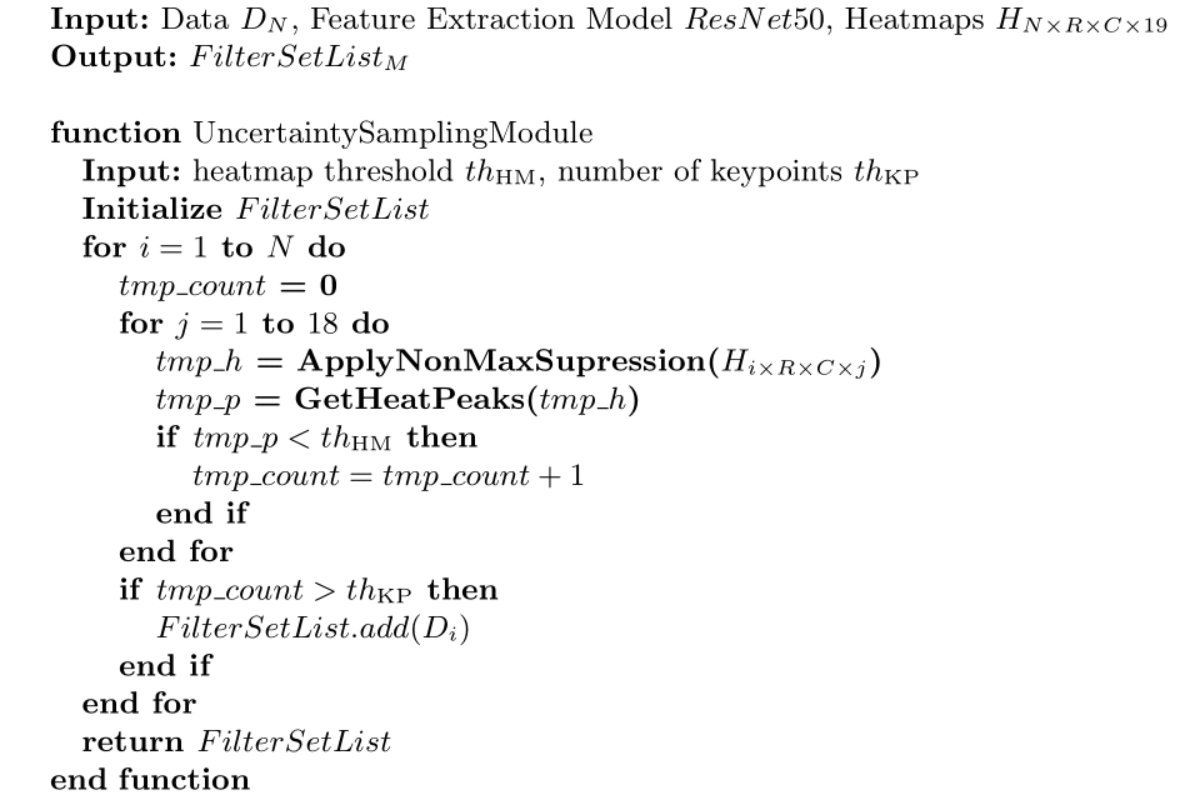
Feature Extraction Module
- Taking advantage of Transfer Learning.
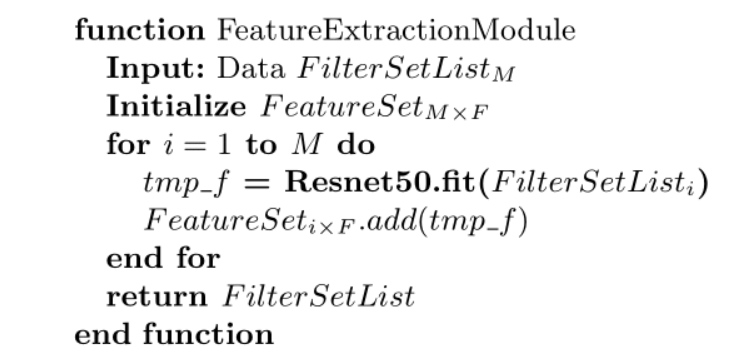
Diversity Sampling Module
- Use approximate nearest neighbors to reduce sampling cost.

Experiments
Data
-
Provided by PintaWorks Oy.
- Environment dependent variations in the data:
- camera angle, lightning.
-
Consists of grayscale images with 368x368 size.
- Applied augmentations:
- rotation, translation, scaling, blurring, brightness and contrast
- camera angle, lightning.
- rotation, translation, scaling, blurring, brightness and contrast
Model
- Openpose Model from Tensorlayer repo.
- Approximate Nearest Neighbor Libraries:
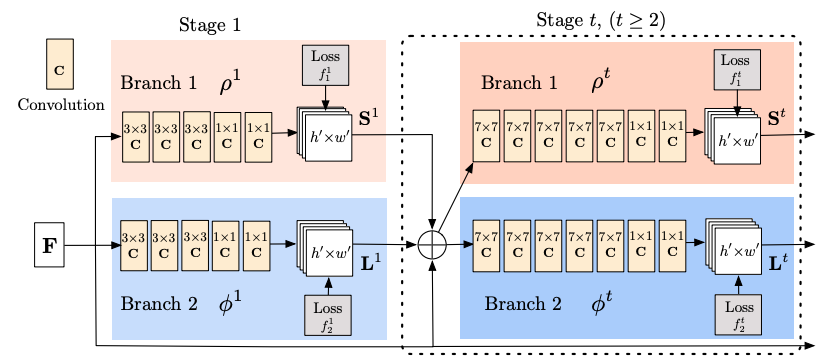
Training Details
- Tensorflow stack is used.
-
5 training iterations conducted for each method (AL and the baseline method):
- At each iteration 1K samples are selected by the proposed AL strategy and annotated by Oracle(human).
-
Hardware:
- NVIDIA GeForce GTX 1060 6GB
- CUDA 10.1 and cuDNN 7.6
Validation of AL Strategy
- Samples with high and low heatmaps (confidence scores).
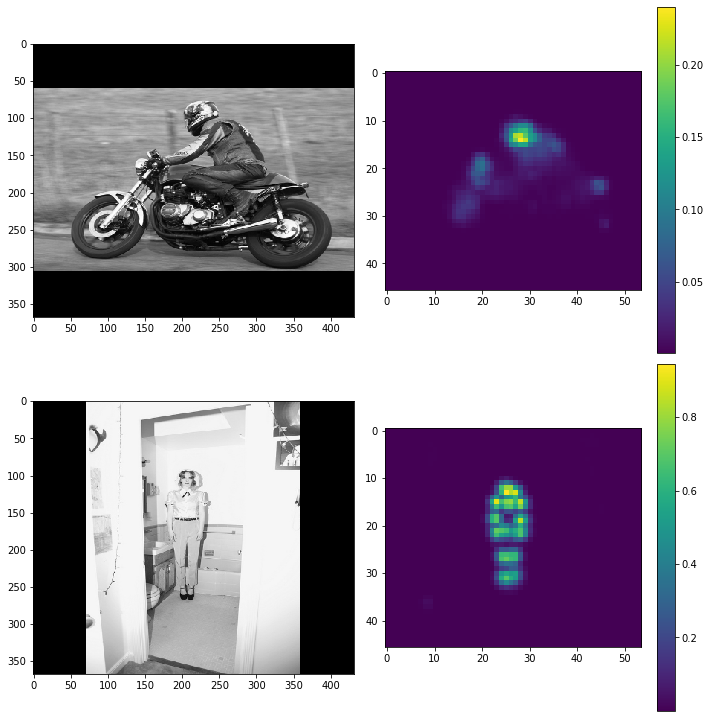
Validation of AL Strategy
- Selected samples to be annotated from COCO-val.
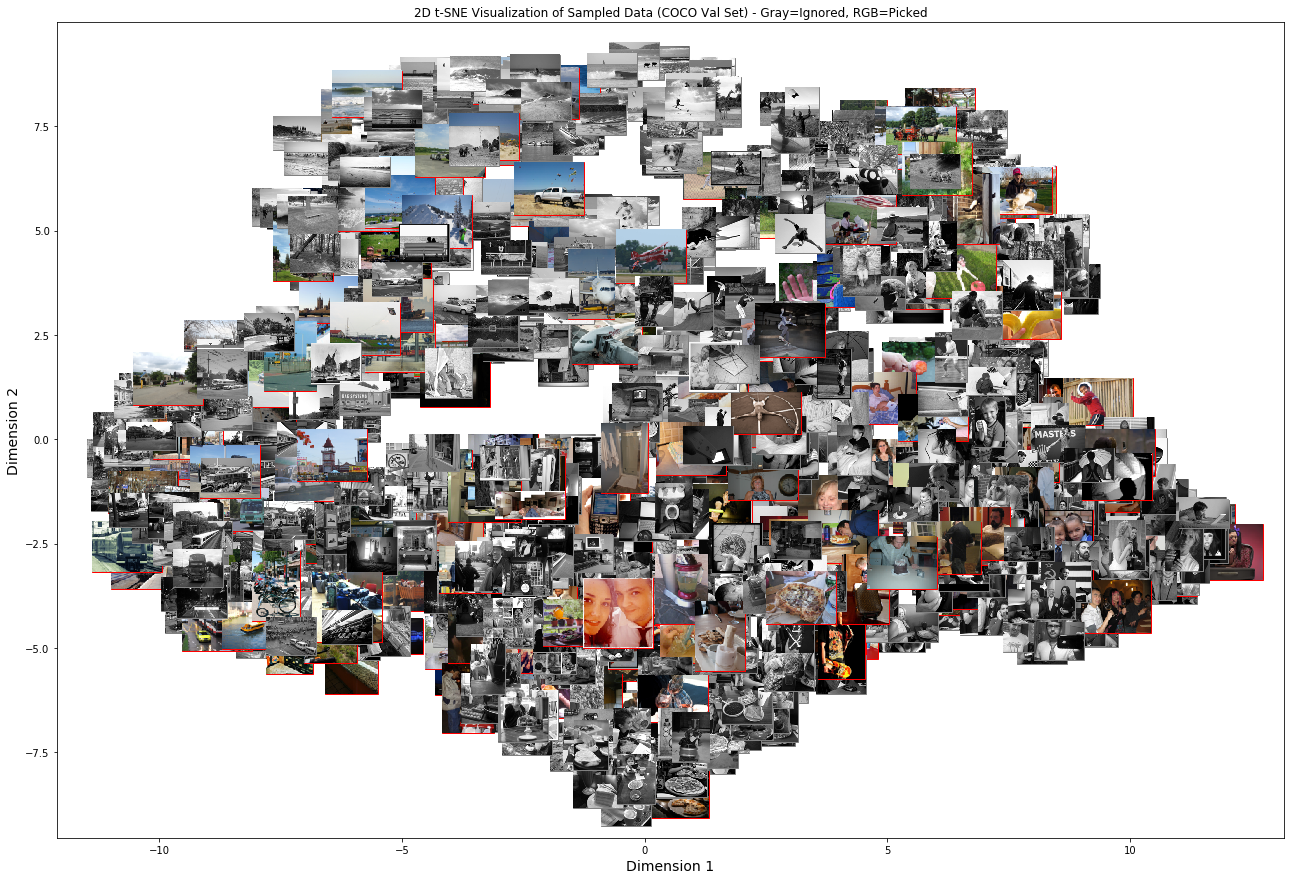
Tests
- The Comparison of Methods on Test Set
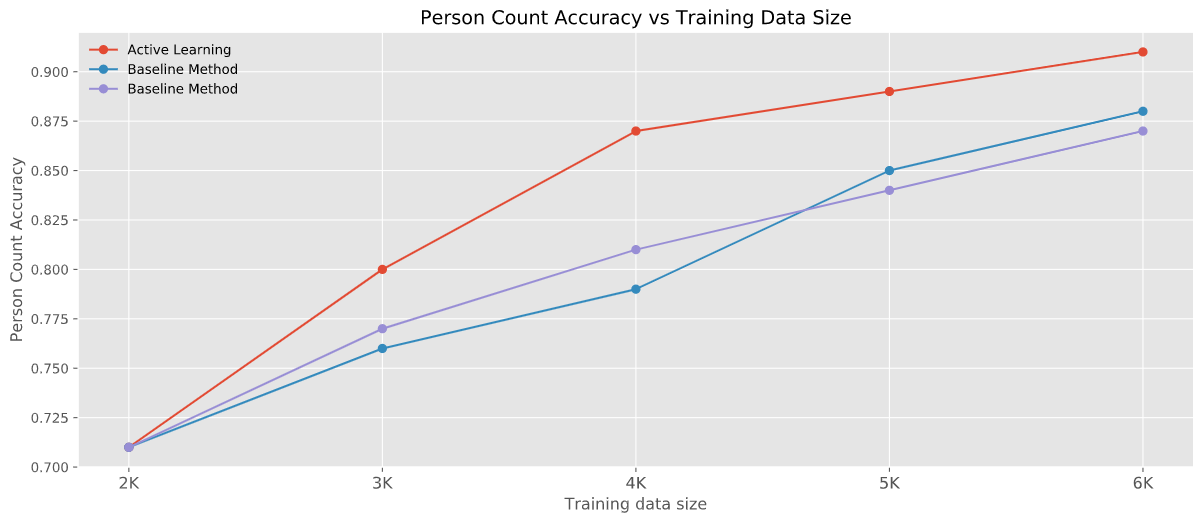
Test Time Augmentation(TTA) Tests
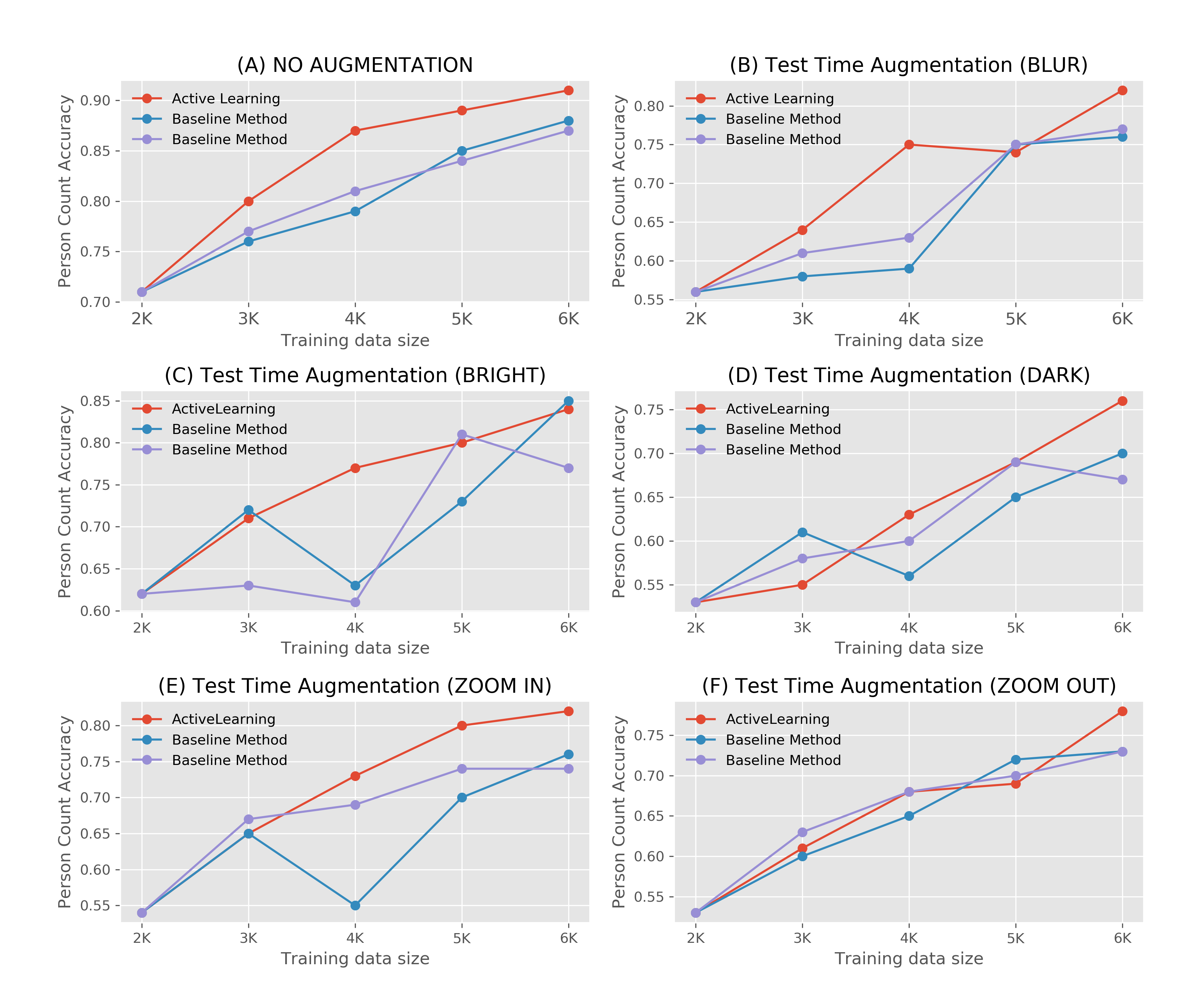
DISCUSSION
- Pros:
- The proposed method improves the pose model significantly.
- The AL method is able to select diverse samples.
- Cons:
- Adversarial samples in which some objects resemble a human shape.
- Person size (small) and occlusions for pose model.
FUTURE WORK
-
Improve uncertainty sampling module:
- Eliminate adversarial samples
- Proposal: use average of Test Time Augmentations
-
Improve Diversity Sampling Module:
- Hierarchical clustering
- Combine local features and visual features- possibly image hashes.

Thank you!
sinan.kaplan@pintaworks.fi